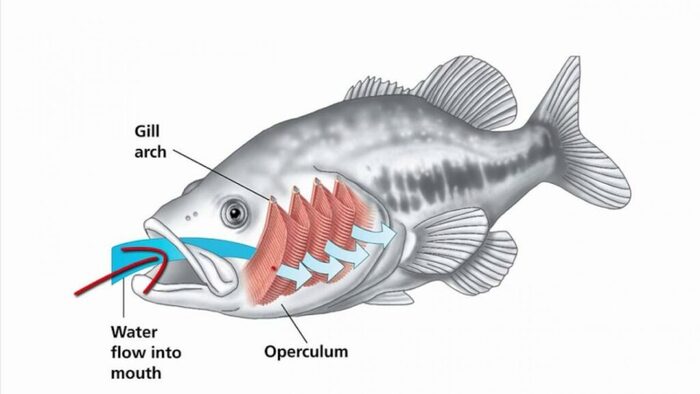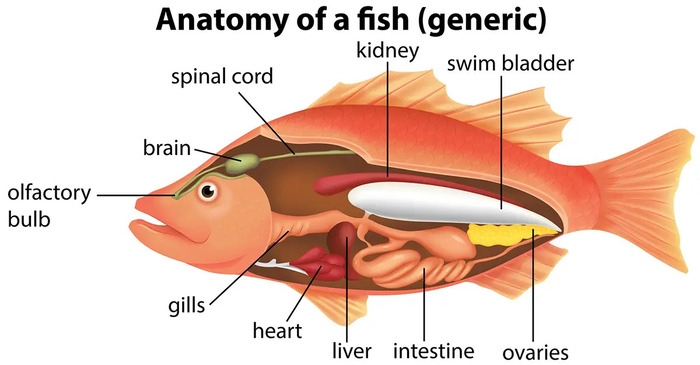When we think about drowning, we usually picture a human or land animal struggling to breathe in water. But can fish drown? The answer is a bit more complex than a simple yes or no. While fish are adapted to live in water, there are situations in which they can suffocate, which might be colloquially referred to as “drowning.” To understand this phenomenon, we need to dive into how fish breathe and what might cause them to lose this ability.

Fish have specialized organs called gills that allow them to extract oxygen from water. As water flows over the gills, oxygen is absorbed into the bloodstream, while carbon dioxide is expelled. Unlike humans, who breathe air using lungs, fish rely entirely on the flow of water through their gills to take in oxygen.
Fish can breathe in water as long as there is enough dissolved oxygen in the water. The process of respiration in fish is efficient, but it does have limits. For example, fish cannot breathe air like mammals can, and if their gills are damaged or if water conditions become unsuitable, they can lose the ability to extract oxygen.
Fish don’t “drown” in the same way land animals do, as they don’t need to breathe air to survive. However, fish can suffocate if they cannot get enough oxygen from the water. This can happen in several scenarios:
Lack of Oxygen in the Water (Hypoxia):When oxygen levels in the water are too low, fish may struggle to breathe. This can happen in poorly oxygenated ponds, stagnant water, or areas with high levels of pollution. Fish in such environments may suffocate due to insufficient oxygen for their gills to absorb.
Gill Damage:If a fish's gills are damaged or infected, it may not be able to extract oxygen properly from the water. This can occur due to physical injury, disease, or exposure to pollutants. In such cases, the fish may die from suffocation, a condition sometimes referred to as "drowning."
Obstructions or Environmental Stress:Certain environmental conditions, such as an algae bloom or rapid changes in water temperature, can also reduce the oxygen content in the water. Similarly, water flow or turbulence is crucial for fish to effectively breathe, and in stagnant water, fish can be deprived of sufficient oxygen.
Excessive Physical Stress:Fish exposed to high levels of stress, such as overcrowding, excessive handling, or environmental changes, may experience difficulty breathing, which can lead to suffocation. Stress weakens their immune systems, making them more susceptible to diseases that could affect their gills.
While “drowning” is a term we typically associate with land-based animals, the suffocation of fish is caused by different mechanisms. The key difference is that fish do not need air to survive, but instead rely on oxygen dissolved in water. A lack of oxygen, damage to their gills, or poor water quality can all cause them to suffocate, which may be inaccurately referred to as drowning.

In some cases, fish can survive for a short time out of water, though this is highly dependent on the species. Some fish, like the lungfish, can breathe air for extended periods, while others can only survive briefly outside water before suffocating. However, this is not the same as drowning. When these fish are out of the water, they cannot extract oxygen from their gills, but they may still be able to breathe air if they have lungs or other adaptations.
So, can fish drown? Technically, no—fish cannot drown in the same way mammals can. However, they can suffocate if they cannot obtain enough oxygen from the water, which is sometimes referred to as drowning in a colloquial sense. Ensuring that fish have access to clean, oxygen-rich water and avoiding stressors are key factors in preventing suffocation and promoting the health of aquatic life.
Kegley, S. E., & Burchfield, J. (2002). Water Quality and Aquatic Ecosystem Health: A Review of Freshwater Fish Respiration. Environmental Research, 45(2), 132-139.
Wang, H., & Xu, Z. (2018). The Impact of Hypoxia on Freshwater Fish Respiratory Functions. Aquatic Biology Journal, 67(1), 23-31.
Roessig, J. M., & Hansen, S. L. (2013). Fish Respiration in Freshwater Systems: The Role of Oxygen. Journal of Aquatic Sciences, 44(2), 78-85.
animal tags: fish
We created this article in conjunction with AI technology, then made sure it was fact-checked and edited by a Animals Top editor.